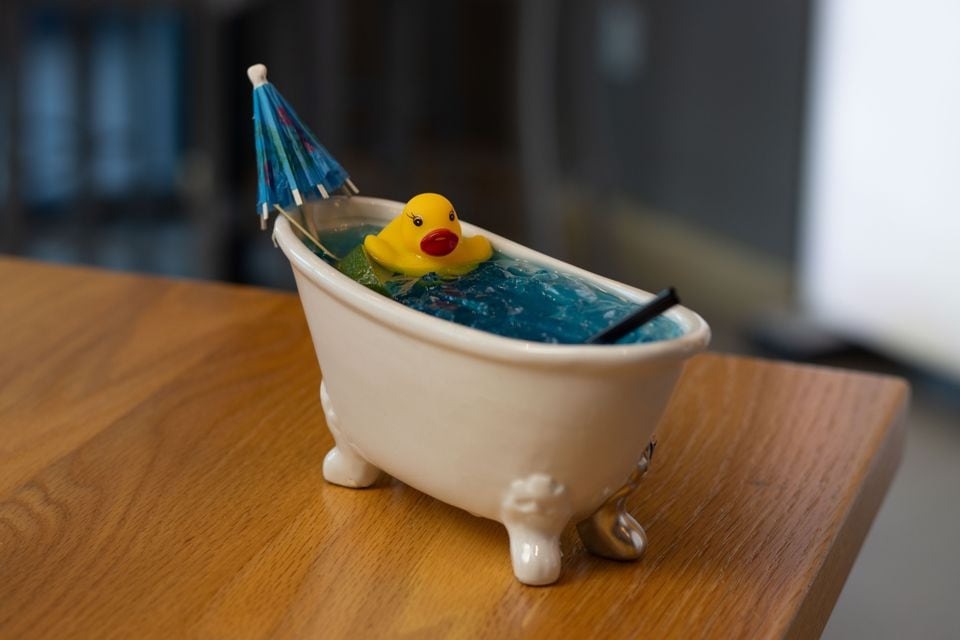The concept of finding a comfortable work-life balance is arguably lost to the average American. With career burnout and dissatisfaction at an all-time high, students and professionals alike are grappling with the consequences of today’s workaholic culture. It can be quite impractical or even impossible to take time for oneself when it is needed, especially with the current abnormally high cost of living.
Intrinsically tied with this issue is the matter of mental health, the knowledge of which has trickled down to the average American more and more through the years. When comparing the average teenager from the 1950s to a teenager of the modern day, the latter’s understanding of such concepts as gaslighting, emotional abuse, and self-care are impressively vast.
Some might say that Gen Z and/or millennials are taking upon themselves the heavy burden of educating themselves on the subject of mental health, as previous generations have miserably failed to do. Others would say that these same groups of people are overly sensitive and coddled in a culture of “safe spaces” and political correctness. Neither perspective is entirely wrong, but both are overly simplistic. Can a healthy medium be found?
When breaching the subject of a “mental health break,” opinions can be just as divided as those described above. Some consider it necessary, others see it as a frivolous venture for a weak and coddled younger generation. But with the amount of celebrities, influencers, and other high profile figures taking advantage of the practice, it is becoming more and more normalized.
As of late, University of New Mexico basketball player Braden Appelhans publicly acknowledged his recent mental health related absence from the team on Twitter. Speaking about his lifelong struggles with depression, anxiety, and ADHD, Appelhans emphasized the importance of taking time for oneself, even if one is in a prominent public position. Other notable individuals such as Simone Biles, Tom Holland, and Chrissy Teigen have also taken breaks from their public lives for the sake of their mental health.
Despite the seemingly logical motivations behind this type of self-care (especially for a busy public figure), others don’t quite see it that way.
YouTuber Abby Shapiro, younger sister of right-wing political pundit Ben Shapiro, has come under fire for criticizing the concept of so-called “self-care nights” via her YouTube channel, “Classically Abby.” In her video, “Self Care is TRASH. Here’s Why,” Shapiro detailed her stance on the modern concept of self-care, condemning the notion and supplying her own somewhat questionable methods: “When you’re feeling upset or overwhelmed, instead of dealing with the root of the problem, just kinda take a day off and indulge […] you stick a band-aid on a gaping wound by drinking a bit of wine and watching a stupid TV show.”
Her position has faced backlash from countless viewers, both within and outside her community, with a majority of her comments calling out her hypocrisy and sweeping generalization of her stance. With Shapiro being only 30 years old, the generational divide isn’t even too noticeable here. But the issue still remains.
Shapiro almost communicated a relatable message to her audience, but maintained too much of her holier-than-thou persona to be taken seriously. She correctly pointed out that the solution of indulging in substances on the regular is no solution at all, but took it too far in the other direction: shaming and persecuting those who merely take bubble baths and listen to the occasional podcast for self-care.
If one is to truly advocate for mental health breaks and self-care, they must not act as if they are above needing such things themselves. Shapiro takes the stance that not only does she hardly ever need to take a night of recovery, but that she does it in a way that is fundamentally better than that of her viewers. This is no way to influence change within one’s following.
The middle-of-the-road approach that is so desperately needed is this: moments of self-care that are as frequent and lengthy as needed for each specific person, and cater uniquely to their own mental health needs. No influencer, celebrity, or political figure can dictate what this personal routine should look like for each individual. Each must pave their own way forward. What may be too much for one person is not enough for another, as self-care is a deeply personal process. Thus, either side of the argument may be correct — it all depends on the individual.




